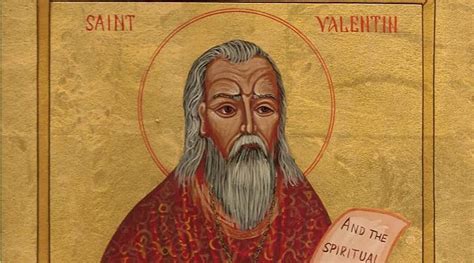Día de Andalucía – Tuesday 28 February 2023
Tuesday, February 28, 2023
 Andalucía Day marks the anniversary of a referendum held on 28 February, 1980 when a large majority of voters supported the referendum for Andalucía to become one of the 17 autonomous communities in Spain, following Spain’s democratisation after nearly forty years of the Franco dictatorship. Andalucía Day marks the anniversary of a referendum held on 28 February, 1980 when a large majority of voters supported the referendum for Andalucía to become one of the 17 autonomous communities in Spain, following Spain’s democratisation after nearly forty years of the Franco dictatorship.
General Franco died in November 1975 and was succeeded as Head of State by King Juan Carlos I, since disgraced and living in exile. The History Man has done some research ..…
Día de Andalucía is a significant day in the life of most andaluces. It is a public holiday so that schools, businesses, and government offices are closed.
In 2020 it was not celebrated officially because of the Covid pandemic. In 2021, 28-F, as the Spanish call it, was restricted, again because of the Coronavirus.
In 2022 Día de Andalucía was back to normal and all hell was let loose. It promises to be the same again today.
Many people will spend the day quietly with family or close friends. However, some people organise or attend private parties with traditional music, dancing, food and drink. Some municipalities hold communal meals with traditional foods, drinks and entertainment. This did not happen in 2020 or 2021, of course, because of the Covid-19 restrictions.
The autonomous community of Andalucía shares international land borders with Portugal and Gibraltar. Within Spain, it borders the autonomous communities of Castilla-La Mancha, Extremadura and Murcia. People in Andalucía voted for the region to become an autonomous community of Spain on February 28, 1980. However, the Spanish Parliament only accepted Andalucía as a historic nationality in 2006.
Andalucía’s flag is widely displayed on Andalucía Day. It consists of three equal horizontal bars. The top and lower bars are dark green and the middle bar is white. Andalucía’s coat of arms is at the centre of the flag. Andalucía’s coat of arms consists of an image of the mythical Greek hero Heracles between two columns. The columns represent the Pillars of Heracles. These are the rocks on either side of the Straits of Gibraltar.
In many cities, towns and villages in Andalucía people decorate their balconies with the regional flag and with green-and-white bunting.
This year it looks like we may have gotten to grips with the Covid-19 virus, so everything should be more or less back to normal. Let’s hope so and let’s enjoy today.
 This writer already has his plans in place: he’s off to Allioli Bar y Mas in Jimera de Líbar, Málaga, to see live music performed by the rock band Equis, featuring Markus Myers, formerly of the band Alicia’s Attic. This writer already has his plans in place: he’s off to Allioli Bar y Mas in Jimera de Líbar, Málaga, to see live music performed by the rock band Equis, featuring Markus Myers, formerly of the band Alicia’s Attic.
Beer, tapas, fresh air and brilliant music!
!Felices fiestas!
 0
Like
Published at 8:51 AM Comments (1)
0
Like
Published at 8:51 AM Comments (1)
23/24 February – bad days for democracy
Friday, February 24, 2023
 Two attacks on democracy have taken place on 23 and 24 February. One, 42 years ago in Spain and the other, 12 months ago in Ukraine. The History Man tells us more. Two attacks on democracy have taken place on 23 and 24 February. One, 42 years ago in Spain and the other, 12 months ago in Ukraine. The History Man tells us more.
Ukraine
 It is 12 months since Vladimir Putin, president of Russia, launched his illegal and brutal attack on Ukraine. He called it a special operation to stave off the "nazification" of Ukraine. It is 12 months since Vladimir Putin, president of Russia, launched his illegal and brutal attack on Ukraine. He called it a special operation to stave off the "nazification" of Ukraine.
Does Putin think we’re stupid? Or that the Russian people are? Problem is, propaganda and lies like this are all the vast majority of Russians get to hear via the tightly controlled media in that country.
The latest death toll figures are difficult to establish with both sides over- or under-estimating the data for their own political reasons. Many agencies make different estimates of the death and injury statistics.
Official US resources reckon that 200,000 soldiers have died on both sides.
Other “official” figures show that 7,199 Ukraine civilians have been killed – a war crime, or more accurately 7,199 separate war crimes.
18,483 civilian casualties were reported between February 24 and January 23, 2023, according to the UN Office of the High Commissioner for Human Rights (OHCHR).
1,276 children have been killed or injured in violence between the beginning of the conflict and January 23, 2023.
About 5.7 million school-aged children have been affected by the conflict, including 3.6 million due to school closures.
17.7 million people need humanitarian aid and protection. In addition to the more than 8 million refugees outside Ukraine, an estimated 5.5 people have been displaced within Ukraine.
With over 8 million fleeing Ukraine as of early January, this has become one of the largest and fastest displacement crises in the world today, according to the UNHCR (United Nations High Commission for Human Rights). It is also one of the bloodiest conflicts in Europe since World War II.
Data provided by www.worldvision.org
Spain and 23-F
 23 February was the date, 42 years ago, when a pistol-wielding civil guard, Lieutenant Colonel Antonio Tejero, backed by 200 civil guards, entered the chamber of the Spanish parliament, fired shots into the air and tried to initiate an ill-advised and under-prepared golpe de estado (coup). 23 February was the date, 42 years ago, when a pistol-wielding civil guard, Lieutenant Colonel Antonio Tejero, backed by 200 civil guards, entered the chamber of the Spanish parliament, fired shots into the air and tried to initiate an ill-advised and under-prepared golpe de estado (coup).
The coup attempt failed and democracy was quickly restored.
I wrote about this a year ago in Eye on Spain. Please see A Failed Coup (eyeonspain.com)
The future of democracy
 Can democracy as a political concept survive? When democratic political systems elect people like Trump, Johnson, Erdogan and even Putin, one has to raise one's eyebrows. Can democracy as a political concept survive? When democratic political systems elect people like Trump, Johnson, Erdogan and even Putin, one has to raise one's eyebrows.
It’s an interesting debate. Absolutely crucial is that Putin must not win this war. The West is behind Ukraine, but despite the provision of massive resources, more needs to be done. There is a lot of rhetoric on the part of politicians like Biden, Sunak, Macron and Sanchez, and belatedly Schulz in Germany, but is it enough?
© The History Man
 3
Like
Published at 8:26 AM Comments (0)
3
Like
Published at 8:26 AM Comments (0)
Pancake Day or Shrove Tuesday
Tuesday, February 21, 2023
 Shrove Tuesday, or Pancake Day is the day before Ash Wednesday, the first day of Lent, the 40 days running up to Easter. Shrove Tuesday is observed in many Christian countries through participation in confession and absolution. Shrove Tuesday, or Pancake Day is the day before Ash Wednesday, the first day of Lent, the 40 days running up to Easter. Shrove Tuesday is observed in many Christian countries through participation in confession and absolution.
For most of us, however, it is simply Pancake Day.
The History Man delves deeper into this tradition.
Shrove Tuesday
Shrove Tuesday is a moveable feast determined by Easter, which in turn is determined by the Moon. The expression "Shrove Tuesday" comes from the word shrive, meaning " absolve".
In France, Shrove Tuesday is known as Mardi Gras ("Fat Tuesday"), referring to the practice of the last night of eating richer, fatty foods before the ritual fasting of the Lenten season, which begins on Ash Wednesday.
Many Christian congregations plus non-practising folk observe the day through eating pancakes.
In some Christian countries, it is also a carnival day, the last day of "fat eating" or "gorging" before the fasting period of Lent.
Why pancakes?
It was traditional in many societies to eat pancakes or other foods made with the butter, eggs and fat or lard that would need to be used up before the beginning of Lent.
The specific custom of British Christians eating pancakes on Shrove Tuesday dates to the 16th century.
The word shrove is a form of the English word shrive, which means to obtain absolution for one's sins. Thus, Shrove Tuesday was named after the custom of Christians to be "shriven" before the start of Lent.
In the UK, Ireland and parts of the Commonwealth, Shrove Tuesday is also known as Pancake Day, as it became a traditional custom to eat pancakes.
In Spanish-, Portuguese- and Italian-speaking countries, among others, it is known as carneval. This derives from Medieval Latin carnelevamen ("the putting away of flesh") and thus to another aspect of the Lenten fast, to abstain from eating meat.
 The day, or week, is often celebrated with street processions or fancy dress. The most famous of these events are the Brazilian Carnival in Río de Janeiro and the Santa Cruz Carnival in Tenerife (Canary Islands). The day, or week, is often celebrated with street processions or fancy dress. The most famous of these events are the Brazilian Carnival in Río de Janeiro and the Santa Cruz Carnival in Tenerife (Canary Islands).
In Spain, the Carnival Tuesday is named día de la tortilla, "omelette day", since, rather than pancakes, an omelette made with some sausage or pork fat is eaten.
Shrove Tuesday serves a dual purpose of allowing Christians to repent of any sins they might have made before the start of Lent on the next day, Ash Wednesday, and giving them the opportunity to engage in a last round of merriment before the start of the sombre Lenten season.
Pancakes are associated with Shrove Tuesday, the day preceding Lent, because they are a way to use up rich foods such as eggs, milk, and sugar, before the fasting season of the 40 days of Lent. The liturgical fasting emphasises eating simpler food, and refraining from food that would give undue pleasure: in many cultures, this means no meat, dairy products or eggs.
On Pancake Day, "pancake races" are held in villages and towns across the United Kingdom. The tradition is said to have originated in 1445 when a housewife from Olney, Buckinghamshire, was so busy making pancakes that she forgot the time until she heard the church bells ringing for the service. She raced out of the house to church while still carrying her frying pan and pancake, tossing it to prevent it from burning.
The pancake race remains a relatively common festive tradition in the UK, especially in England. Participants with frying pans race through the streets tossing pancakes into the air and catching them in the pan while running.
Shrove Tuesday in Spain
 As indicated previously, omelette is eaten instead of pancakes, according to tradition thus using up the surplus butter and eggs, which couldn’t be eaten during Lent. As indicated previously, omelette is eaten instead of pancakes, according to tradition thus using up the surplus butter and eggs, which couldn’t be eaten during Lent.
There are processions in most towns and cities, plus other events and activities. Since this week coincides with schools’ half-term holiday, known here as Semana Blanca, there is plenty for the kids.
I haven’t been to Río, but I have been to the carnival in Santa Cruz de Tenerife a number of times. Spectacular!
Enjoy your pancakes or your tortillas!
© The History Man
With acknowledgements to Wikipedia
Tags: Ash Wednesday, butter, Canary Islands, día de la tortilla, eggs, frying pan, History Man, Lent, pancake, Pancake Day, pancake race, Puerto de la Cruz, Rio de Janeiro, shrive, shrove, Shrove Tuesday, Tenerife, tortilla
 2
Like
Published at 7:54 AM Comments (0)
2
Like
Published at 7:54 AM Comments (0)
St Valentine's Day
Monday, February 13, 2023
 Tomorrow, 14 February, is St Valentine's Day. Have you ever thought about the origins of the custom of sending flowers and cards, going for a romantic meal, etc? Tomorrow, 14 February, is St Valentine's Day. Have you ever thought about the origins of the custom of sending flowers and cards, going for a romantic meal, etc?
Last year The History Man posted Valentine's own story. Valentinus, a Roman, lived in the third century AD. He died on 14 February 269 AD. Here is his story again, for 2023, translated from the original Latin.
“Let me introduce myself. My name is Valentine. I lived in Rome during the third century. That was long, long ago! At that time, Rome was ruled by an emperor named Claudius. I didn't like Emperor Claudius, and I wasn't the only one! A lot of people shared my feelings.
 “Claudius wanted to have a big army. He expected men to volunteer to join. Many men just did not want to fight in wars. They did not want to leave their wives and families. As you might have guessed, not many men signed up. This made Claudius furious. So what happened? He had a crazy idea. He thought that if men were not married, they would not mind joining the army. So Claudius decided not to allow any more marriages. Young people thought his new law was cruel. I thought it was preposterous! I certainly wasn't going to support that law! “Claudius wanted to have a big army. He expected men to volunteer to join. Many men just did not want to fight in wars. They did not want to leave their wives and families. As you might have guessed, not many men signed up. This made Claudius furious. So what happened? He had a crazy idea. He thought that if men were not married, they would not mind joining the army. So Claudius decided not to allow any more marriages. Young people thought his new law was cruel. I thought it was preposterous! I certainly wasn't going to support that law!
“Did I mention that I was a priest? One of my favourite activities was to marry couples. Even after Emperor Claudius passed his law, I kept on performing marriage ceremonies -- secretly, of course. It was really quite exciting. Imagine a small candle-lit room with only the bride and groom and myself. We would whisper the words of the ceremony, listening all the while for the steps of soldiers.
“One night, we did hear footsteps. It was scary! Thank goodness the couple I was marrying escaped in time. I was caught. (Not quite as light on my feet as I used to be, I guess.) I was thrown in jail and told that my punishment was death.
“I tried to stay cheerful. And do you know what? Wonderful things happened. Many young people came to the jail to visit me. They threw flowers and notes up to my window. They wanted me to know that they, too, believed in love.
“One of these youn g people was the daughter of the prison guard. Her father allowed her to visit me in the cell. Sometimes we would sit and talk for hours. She helped me to keep my spirits up. She agreed that I did the right thing by ignoring the Emperor and going ahead with the secret marriages. On the day I was to die, I left my friend a little note thanking her for her friendship and loyalty. I signed it, "Love from your Valentine." g people was the daughter of the prison guard. Her father allowed her to visit me in the cell. Sometimes we would sit and talk for hours. She helped me to keep my spirits up. She agreed that I did the right thing by ignoring the Emperor and going ahead with the secret marriages. On the day I was to die, I left my friend a little note thanking her for her friendship and loyalty. I signed it, "Love from your Valentine."
“I believe that note started the custom of exchanging love messages on Valentine's Day. It was written on the day I died, February 14, 269 A.D. Now, every year on this day, people remember. But most importantly, they think about love and friendship. And when they think of Emperor Claudius, they remember how he tried to stand in the way of love, and they laugh -- because they know that love can't be beaten!”
Disclaimer:
I wrote this piece some years ago and I cannot remember my source. I hope I am not guilty of infringing copyright or plagiarising someone else's work.
If I am, please accept my apologies and get in touch and I'll have the post removed.
Tags: Claudius, emperor, card, flowers, heart, St Valentine, San Valentin, Valentine, Valentinus
 0
Like
Published at 6:55 AM Comments (0)
0
Like
Published at 6:55 AM Comments (0)
Spam post or Abuse? Please let us know
|
|